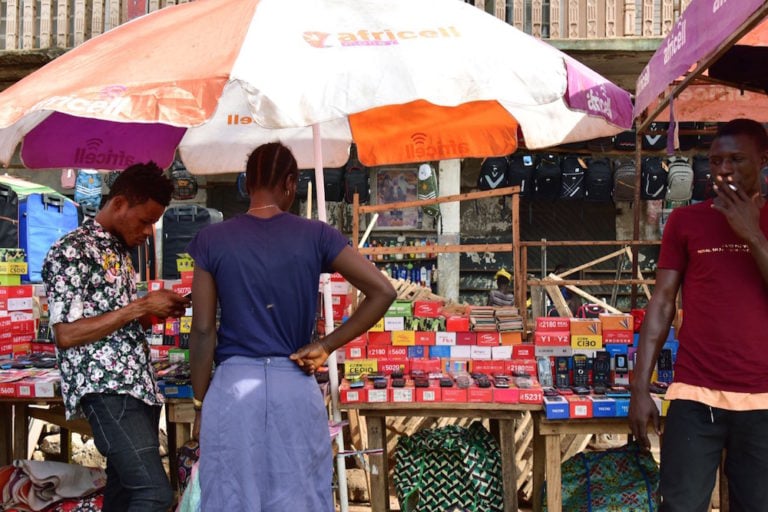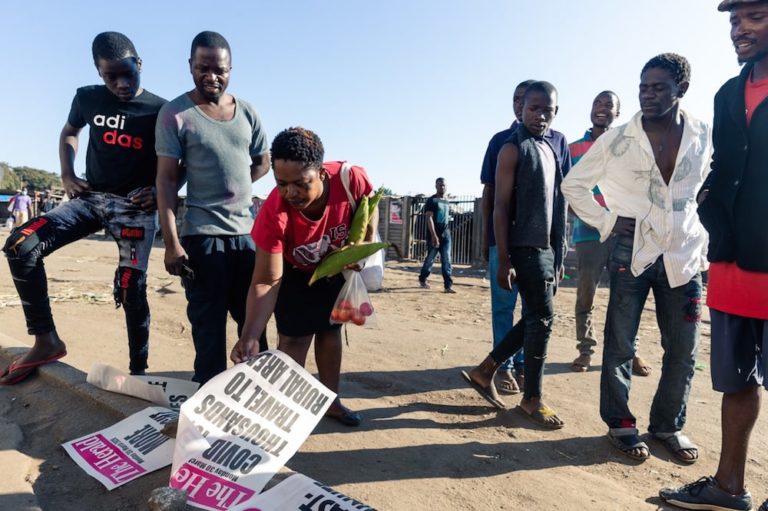It is the “patriotic duty” of everyone — journalists included — to “share” information with the Namibian Security Intelligence Agency (NSIA), the President’s Special Advisor on National Security, Peter Tshirumbu, has told media workers. Tshirumbu on 21 June 1995 gave what newspapers say was his first press conference since Namibian independence in 1990 to respond […]
It is the “patriotic duty” of everyone — journalists included —
to “share” information with the Namibian Security Intelligence
Agency (NSIA), the President’s Special Advisor on National
Security, Peter Tshirumbu, has told media workers.
Tshirumbu on 21 June 1995 gave what newspapers say was his first
press conference since Namibian independence in 1990 to respond
to “fabrications” about the NSIA published in daily local
newspapers “The Namibian”, “Die Republikein” and “The Windhoek
Advertiser”. In May, “The Advertiser” reported allegations made
by human rights activist Phil ya Nangolo that he (Ya Nangolo) had
been harassed by security agents. Then last week, “The Namibian”
and “Die Republikein” reported that NSIA agents were
investigating the formation of a new political party.
In a column published in the 16 June edition of “The Namibian”,
the paper’s editor Gwen Lister mentioned “excessive interest”
shown by the NSIA in the little-known SWAPO For Justice
(SWAPO-FJ) party — presumed to be a breakaway faction of the
ruling SWAPO party. Lister went on to say that journalists had
been approached by NSIA staff for information on the new party,
something which she found “reminiscent of the not-too-distant
apartheid era,” when “The Namibian” and other media workers were
regularly harassed and intimidated by members of the occupying
South African security forces. Lister confirms that two reporters
from “The Namibian” were approached by NSIA agents looking for
information and documentation about the SWAPO-FJ party.
Stating that he had a “high regard and respect for the role being
played by the media in a democracy like ours,” Tshirumbu said the
media carried a “heavy ethical responsibility” to report the
truth — “the singular element” missing “in all instances in
which the Namibian media ventured to report on the NSIA and its
activities.”
“It is known that media operators in Namibia, especially those
who were constantly harassed for what was considered negative
reportage by security organs during the colonial period, had
developed an almost pathological paranoia against security and
intelligence services such that they now always see a shadow of a
spy behind every issue or occurrence,” Tshirumbu told the 21 June
press briefing, adding that such “apprehensions are unfounded and
have no basis in reality”.
The NSIA operated within legislation governing the agency, while
independent checks and balances — what Tshirumbu referred to as
“oversight institutions” — on the agency’s work were also in
place. NSIA Director Andrew Intamba confirms that the legislation
Tshirumbu referred to in his press statement was the same as that
which governed the South African security services before
Namibia’s independence. Intamba said new legislation — the
Intelligence Bill — was now “at an advanced stage,” but in the
meantime, Namibia’s post-independence constitution and “oversight
institutions” (the Ombudsman, for example) would ensure that
abuses carried out by South African security agents under the old
laws would not be repeated by their Namibian successors.
Tshirumbu dismissed as “parochial postulation” arguments that
Namibia — which has enjoyed peace and stability since
independence — did not need “machinery to detect, assess and
handle” threats to “state security.” Threats to the State,
sovereignty and national interests were “always present, both
from within and outside any national State,” Tshirumbu argued,
and “it is therefore imperative that any State which cherishes
its own existence must maintain the institutional capability to
detect, verify and neutralise that threat as and when it occurs.”
Tshirumbu did not elaborate on what constituted such “threats,”
nor on instances when the NSIA had proved its worth in this
regard. Intamba says written guidelines defining “threats” to
state security and national interests did exist, but that these
could only be obtained from Tshirumbu.
Concluding his press statement, Tshirumbu said the NSIA relied on
the “voluntary co-operation of citizens to realise its
objectives…. It is the patriotic duty of citizens of whatever
profession, including journalists, to…share with us what they
have,” “The Namibian” reported Tshirumbu as saying.
Send appeals to the Special Advisor on National Security below:
-pointing out that, as a rule, it is a journalist’s duty to
protect the identity of their sources of information
-therefore adding that, as a rule, it is unethical for a
journalist to help enable anyone, security agents included, to
identify sources
-indicating that exceptions to all rules do exist, but stressing
that the approach to such exceptional situations should only be
decided by journalists in consultation with their editors, and
that such an approach should be in accordance with professional
standards and ethics
-referring to last year’s decision by a Zimbabwean High Court
judge to uphold the right of journalist Geoff Nyarota not to
disclose the identity of those who provided him with information
which helped him and his newspaper to expose the involvement of
ministers and senior government officials in the “Willowgate”
corruption scandal
-encourage Tshirumbu to enter into more public debate about the
work of the NSIA, to widely publicise the criteria by which the
agency judges identify “threats” to “state security and national
interest,” and to publish the draft Intelligence Bill well before
it is tabled in Parliament so as to ensure maximum public debate
on its contents
-further pointing out that terms such as “state security” and
“national interest” are, on their own, very general terms open to
broad interpretation and abuse
-noting that such abuse occurs in many situations — functioning
democracies included
Appeals To
Mr Peter Tshirumbu
Special Advisor on National Security
Private Bag 13339
Windhoek, Namibia
Fax: +264 61 221770
Tel: +264 61 225942
Please copy appeals to the originator if possible.


